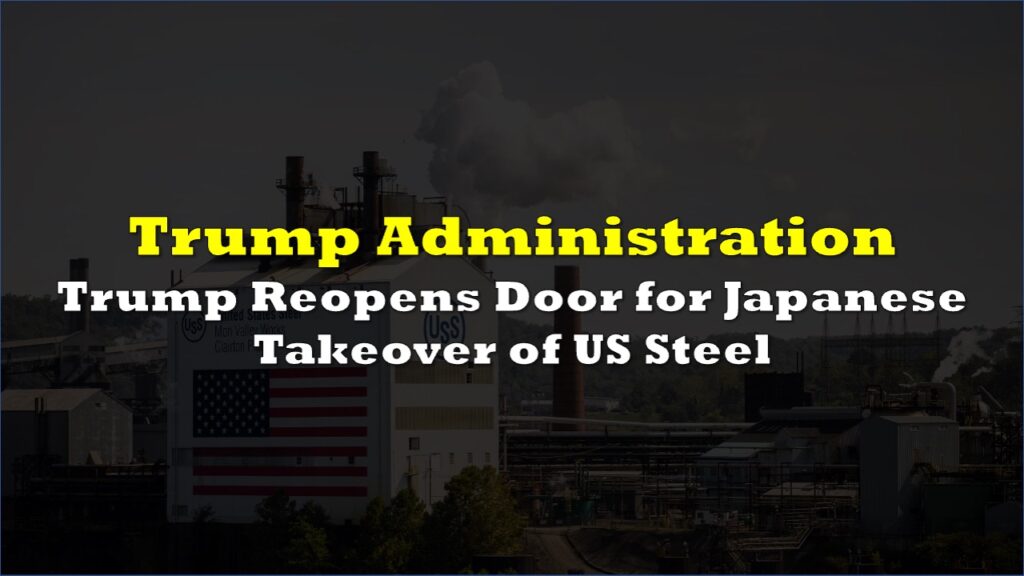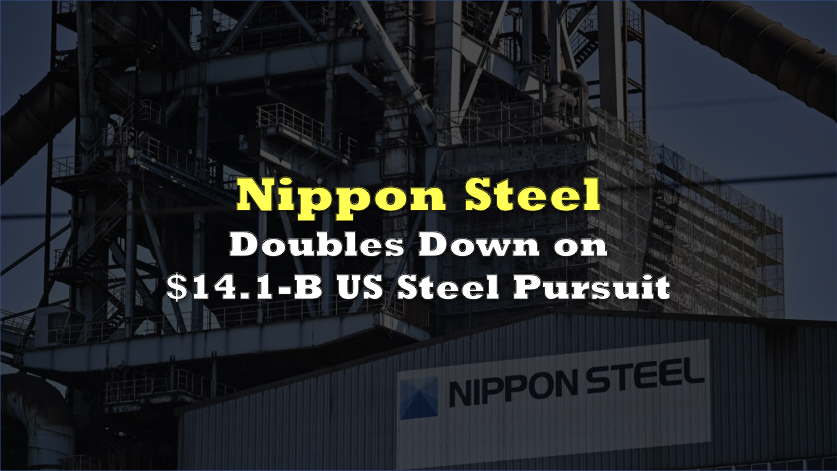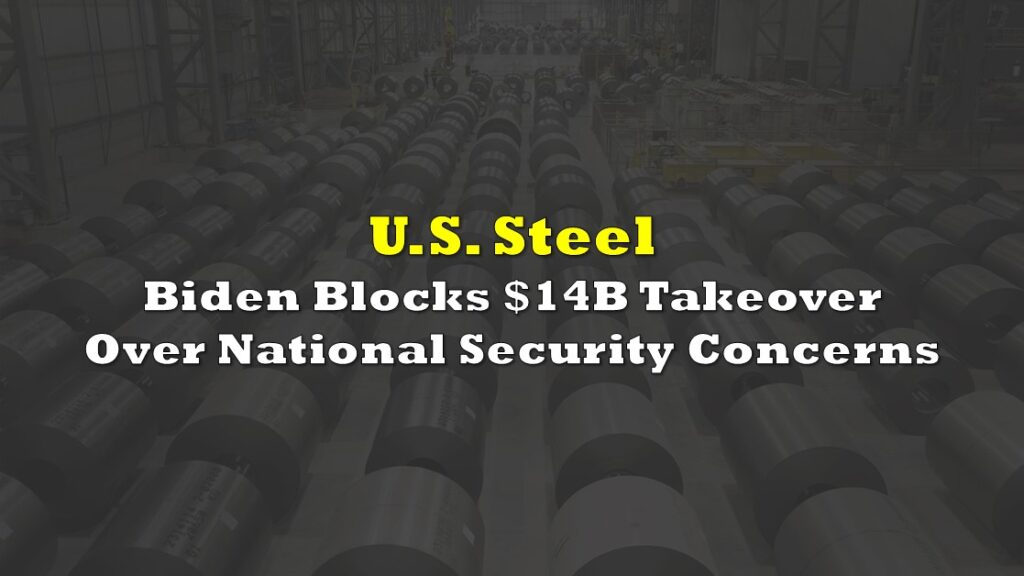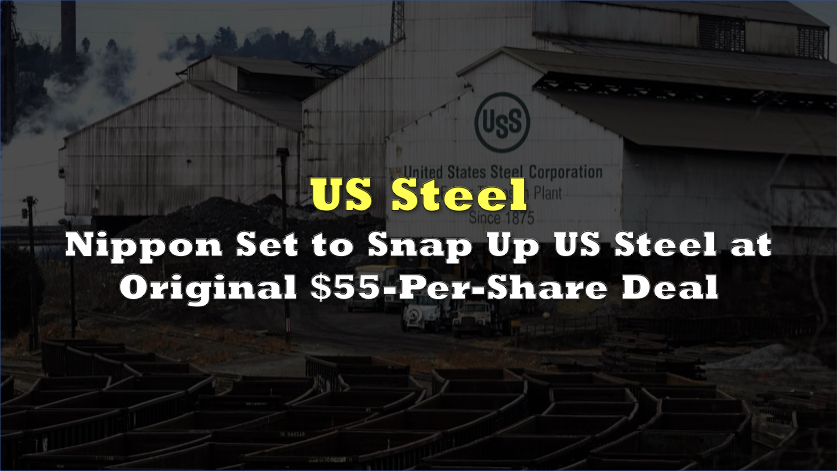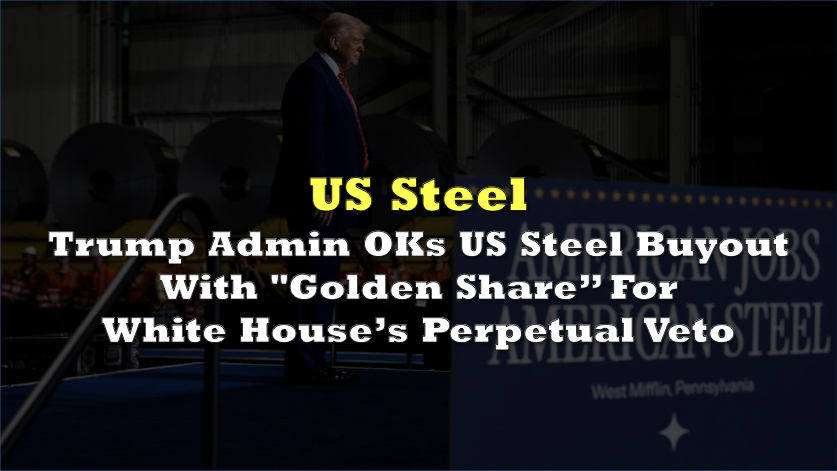United States Steel Corporation (NYSE: X) is warning that it may be forced to close steel mills and relocate its headquarters out of Pittsburgh if a proposed $14.1 billion acquisition by Japan’s Nippon Steel falls through. The warning comes amid growing political opposition to the deal, including pushback from both the Biden administration and labor unions, which have voiced concerns about foreign ownership of a key American industry.
In an interview with The Washington Post, U.S. Steel’s CEO, David Burritt, made it clear that the company’s future hinges on the success of the deal. He explained that Nippon Steel’s pledged investment of nearly $3 billion is critical to upgrading U.S. Steel’s aging mills and maintaining its workforce. Without that infusion of cash, Burritt says, U.S. Steel will struggle to keep its operations afloat.
“We wouldn’t do that if the deal falls through. I don’t have the money,” Burritt said, stressing that the company does not have the resources to modernize its mills without Nippon Steel’s backing.
Burritt painted a bleak picture of what would happen if the deal collapses. Among the most concerning outcomes is the potential closure of mills, including the Mon Valley Works near Pittsburgh. Mon Valley is U.S. Steel’s last steelmaking plant in the region, and its shutdown would mark the end of an era for a city that has been synonymous with steel production for more than a century.
“If that mill won’t make it to the next decade, why would we stay there?” Burritt asked, signaling that U.S. Steel may be forced to abandon Pittsburgh altogether.
The Mon Valley plant isn’t the only facility at risk. U.S. Steel has already idled operations in several other locations in recent years, including parts of its mills near Detroit and St. Louis. Without the support of Nippon Steel, Burritt indicated that further closures would be inevitable, with production shifting to newer, more efficient plants in the southern United States, like the one in Arkansas, which operates with non-union workers.
U.S. Steel has faced significant financial challenges in recent years. After losing money for nearly a decade before 2020, the company has struggled to keep up with rising costs and declining demand. In an effort to cut losses, U.S. Steel deferred maintenance on its older mills and canceled key modernization projects, such as a planned upgrade to the Mon Valley plant in 2021. Instead, the company focused on expanding its operations in Arkansas, where it is doubling the capacity of a plant that melts scrap steel into new products.
Despite a brief recovery when steel prices surged, U.S. Steel’s profits are now being squeezed again as demand wanes amid a weakening manufacturing sector. Industry analysts expect the steel market to remain sluggish through the rest of the year, putting further pressure on the company to cut costs and streamline operations.
Without the nearly $3 billion investment from Nippon Steel, Burritt said U.S. Steel will have no choice but to accelerate its shift away from the more capital-intensive mills in the Midwest and Northeast toward its Arkansas plant, which has become increasingly central to the company’s strategy. That move would not only mean the closure of plants like Mon Valley but also a potential relocation of U.S. Steel’s headquarters to the southern U.S., where much of its future production is likely to be concentrated.
Political resistance
The fate of the deal, however, remains uncertain as political and labor opposition mounts. US President Joe Biden and Vice President Kamala Harris have both expressed concerns about foreign ownership of U.S. Steel, with Harris stating earlier this week that the company should remain “domestically owned and operated.” Though neither Biden nor Harris has explicitly stated that they would block the deal, their statements are being interpreted as signals that the administration could intervene to prevent the acquisition.
Labor unions, particularly the United Steelworkers, are also opposing the deal. The union has long been wary of foreign ownership and has raised concerns about job security, despite Nippon Steel’s pledge to refrain from layoffs through 2026. The United Steelworkers fear that once Nippon Steel takes over, the company could eventually cut jobs or close more mills, further weakening the U.S. steel industry.
For Pittsburgh, the closure of Mon Valley Works and the potential relocation of U.S. Steel’s headquarters would be a significant economic blow. U.S. Steel has been a cornerstone of the city’s economy for over a century, providing thousands of jobs and generating millions in tax revenue. The company estimates that it supports over 11,000 jobs in Pennsylvania and contributes more than $138 million a year in state and local taxes.
Burritt has acknowledged the importance of Pittsburgh to U.S. Steel’s identity but made it clear that the company’s future lies in the South if the Nippon Steel deal is blocked. “We’re not talking about abandoning our roots lightly,” he said, but without the necessary investment, staying in Pittsburgh may not be viable.
Nippon Steel, for its part, has pledged to maintain U.S. Steel’s headquarters in Pittsburgh if the deal goes through. The company has also promised to modernize the aging mills, helping to keep them competitive and sustain jobs in the region.
But with opposition growing from key political figures and labor unions, it remains unclear whether the deal will receive the regulatory approval it needs to move forward.
Information for this briefing was found via The Wall Street Journal and the sources mentioned. The author has no securities or affiliations related to this organization. Not a recommendation to buy or sell. Always do additional research and consult a professional before purchasing a security. The author holds no licenses.





